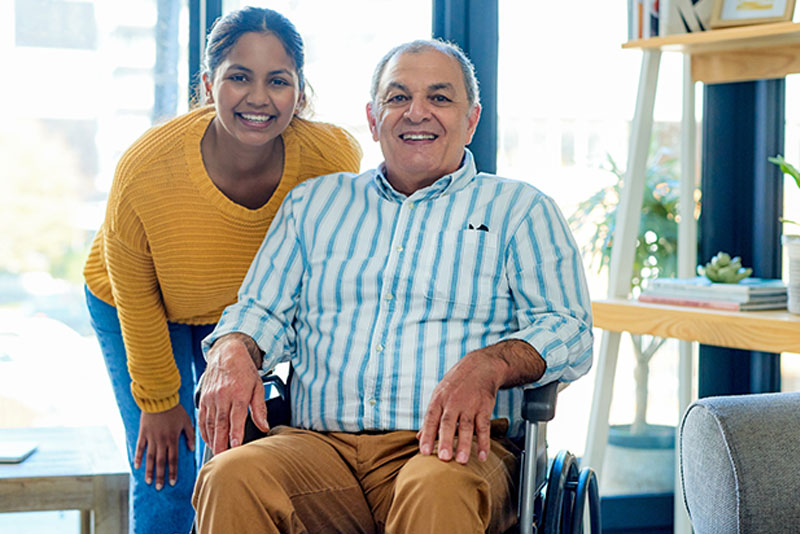
Adjusting to a wheelchair is often a challenging process for older adults
Getting older demands that we get accustomed to more than a few changes. Our children grow up and move away. We may opt to sell the family home and downsize. Retiring from a long-lasting occupation changes our purpose and goals. And, health issues or mobility issues may result in the need for a wheelchair.
Adjusting to a wheelchair could be extremely daunting. A lifetime of hiking, walking, jogging, and dancing has now been traded in for a more sedentary lifestyle. It’s clear what a challenge this can be, and how it can impact someone’s sense of self-reliance.
Assisting an Elderly Loved One Who Is Recently Wheelchair‑Bound
If an older loved one has begun a new chapter of his or her life in a wheelchair, they’re going to need your assistance and reassurance to sort out the various emotions that may come with this change. Fear, embarrassment, anger, and despair are typical. The following tips from our Johnston home health services experts can help.
- Listen. Be present for as much time as possible to simply sit with the senior and allow them to talk about how they are feeling. It is imperative that you let them know they are heard and understood, without seeking to “fix” anything or appear condescending or judgmental in any way. Acknowledge that their emotions are valid.
- Remain positive. After encouraging the senior to share as much as they’d like, make an effort to gently shift the focus of the discussion to what they still can do and what they haven’t lost. Talk through and establish some new goals that the senior would like to achieve, regardless of how small they might appear. If including a little wit is appropriate, shared laughter can be very therapeutic. Understand that a measure of patience will be needed for both of you as the older adult experiences and copes with new frustrations.
- Look into adaptive tools. There are countless devices and tech tools available to help increase independence, safety, and comfort for people who use wheelchairs. There are simple home modifications you can make right away as well, such as moving regularly-used objects to lower cupboards and shelves that the senior can reach with ease and rearranging furniture to make bigger pathways.
- Keep your relationship the same. Regardless of this outward change, the senior is still the same inside. It is important to treat them just the same as always. Your tendency might be to take charge and do as much as possible for the senior to help make life easier for them, but you may end up doing more harm than good. Encouraging the older adult to maintain independence is essential to their wellbeing.
Have a senior loved one who is adjusting to a wheelchair? At-Home Care Company, a trusted provider of Johnston home health services, is here to help! We can provide a complimentary consultation to make suggestions for adjustments around the house that will make it easier for the older adult in a wheelchair to live independently. We can also provide a variety of personalized in-home care services to assist an older adult in whatever way is needed. Call us today at 515-292-2650 for additional information. For a full list of all of the communities where we provide our top-rated care, please visit our Service Area page.
